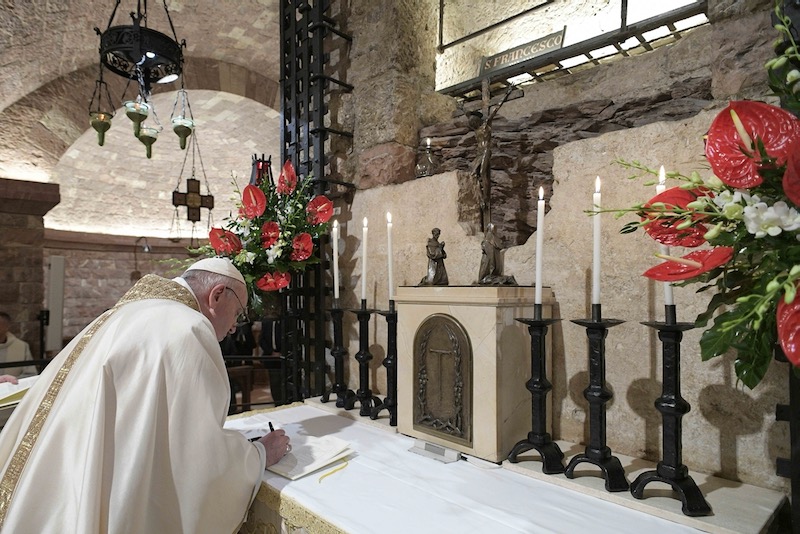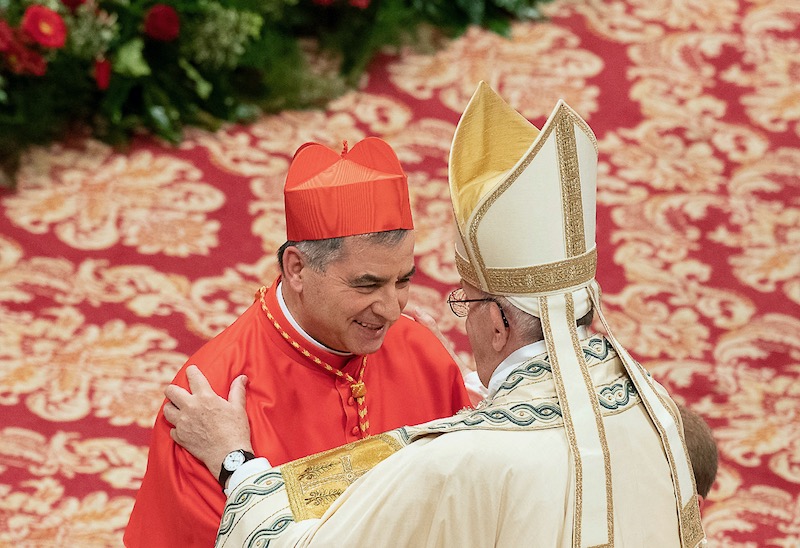The summary dismissal of Cardinal Angelo Becciu by Pope Francis, for so far unsubstantiated allegations of corruption, is likened by The Tablet this week to the execution of Admiral Byng after a naval court martial, which took place, said Voltaire, “pour encourager les autres”. Cardinal Becciu, currently head of the department that handles canonisations and one of the Vatican's key players, was alleged by an Italian newspaper to have favoured members of his own family in the awarding of contracts. He denies any wrongdoing.
At least, says this week's editorial, Admiral Byng had a fair trial. “Cardinal Becciu has had no such opportunity to defend himself, and Pope Francis’s action is not easy to square with the principles of natural justice.”
Corruption in the Vatican was said to have been a factor in the resignation of Pope Benedict, who lost heart when presented with the evidence. Nevertheless there could be cultural factors inside the Vatican, where views on what exactly constitutes corruption may vary. The cardinal seems to believe that “passing work to a family member does not count. He is Italian, and in some Italian families that would be regarded as entirely proper.” But these issues need to be resolved in a court of law.
The Tablet goes on: “Pope Francis wants the Church to be a model of propriety for the world to see and look up to. But there is a long way to go. Catholic Social Doctrine, which Francis regards as being at the heart of his papacy, is almost silent on the subject of corruption.”
As well as putting its own house in order, the Catholic Church should be a leading international campaigner against corruption, and should regard it as part of its mission. However, says The Tablet, “The antidote to corruption is transparency and accountability. The Vatican could do with a large dose of both.”
The second leader criticises the Catholic Church for failing to take seriously the dilemma faced by Catholic legislators and judges when dealing with abortion. The Democratic Party's candidate in the forthcoming presidential election, Joe Biden, has said he personally opposed abortion but did not feel he had the right to impose his views on those who disagreed.
Amy Coney Barrett, who has been nominated to fill the vacancy on the US Supreme Court and who is also a Catholic, has said her duty as a judge is to interpret the law, not to apply Catholic teaching. But the Church has applied to legislators – which in this case includes Supreme Court justices – the principle that cooperation in another's sin is itself sinful, and regards failing to criminalise abortion as equivalent to cooperation with it.
“This,” says The Tablet, “is where Church teaching has painted itself into a corner. Only in countries where conservative Catholicism is in a majority, and not necessarily even then, could it be expected that the criminal law would comply with Church teaching. Otherwise, the outcome of proceedings in courts of law and of debates in legislative assemblies cannot be pre-emptied by the exercise of Church authority. It should, to put it bluntly, back off.”



 Loading ...
Loading ...